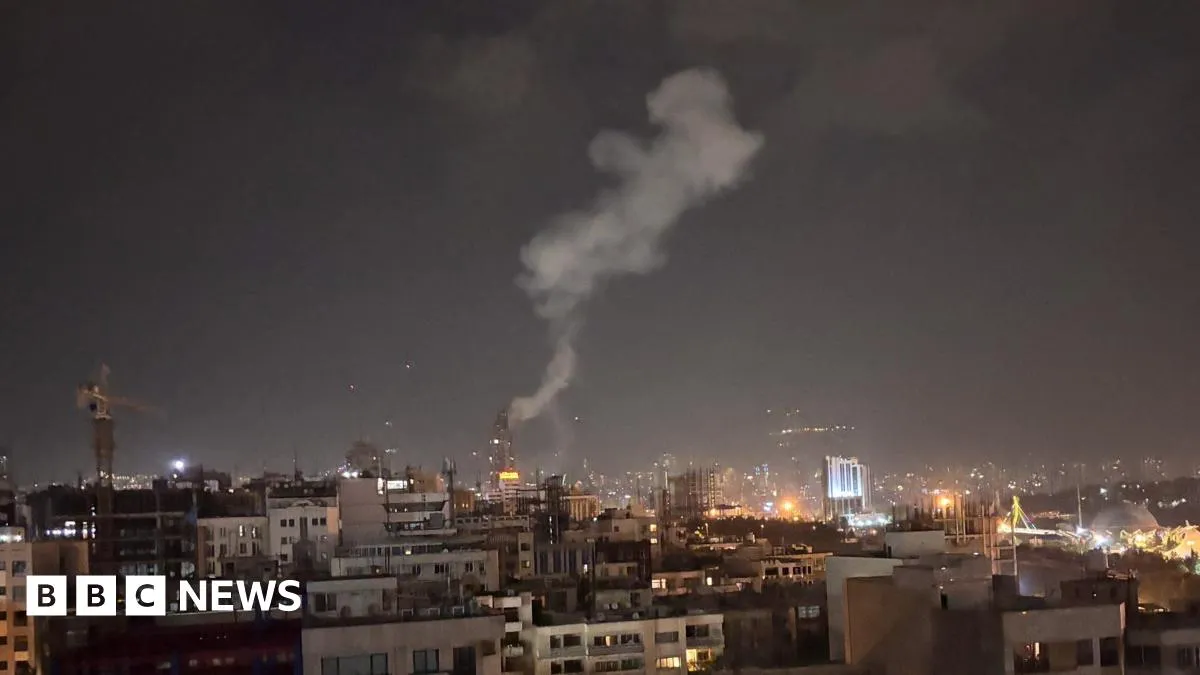
Iran has not witnessed military operations of this scale on its soil since the devastating Iran-Iraq War. Reports from the region indicate a significant escalation in tensions, particularly following a series of unprecedented attacks by Israel. The flight information board at Qatar Airport reflects this turmoil, showing a wave of cancelled flights not only to Iran but also to its neighboring country, Iraq. In response to these developments, Iran has officially closed its airspace, a move that underscores the gravity of the situation.
Airlines are also avoiding flights to Iraq due to heightened security concerns. Paramilitary groups in Iran and Iraq, allied with Tehran, have made it clear that any attack on Iran, whether from Israel or the United States, would render American interests and military bases in the region—particularly those in Iraq—“legitimate” targets. Recent conversations with an advisor to Iraqi Prime Minister Mohammed Shia al-Sudani reveal that the Iraqi government is engaged in intensive discussions with Iran-backed groups to deter any retaliatory actions should Iran come under attack. This effort stems from Baghdad's desire to avoid escalating into a new conflict.
As I prepare to travel to Muscat for the sixth round of Iran-US talks scheduled for this Sunday, uncertainty looms over the proceedings. The recent military actions raise critical questions regarding the future of these negotiations. The situation is more precarious than ever, complicating predictions about the regional landscape.
Information regarding the targets of Israeli strikes is still emerging, but initial reports indicate that Israel's military has targeted numerous military installations, including crucial nuclear facilities in Iran. The primary site of interest is Iran's main uranium enrichment facility located at Natanz, which has reportedly been hit multiple times, leading to significant damage. Images broadcasted by Iranian state television show plumes of smoke rising from the site, which houses thousands of advanced centrifuges used for enriching uranium gas.
Additionally, reports indicate that at least six military bases around Tehran have come under attack, along with the residences of military commanders and several residential buildings. Iranian state media has confirmed the deaths of key military figures, including Hossein Salami, commander-in-chief of the Islamic Revolutionary Guard Corps, and Maj Gen Mohammad Bagheri, overall commander of the Iranian army. The fatalities extend to prominent nuclear scientists, such as Fereydoon Abbasi and Mohammad Mehdi Tehranchi.
Prior to the strikes, Israeli Defense Minister Israel Katz characterized the situation as a pivotal moment in the history of Israel and the Jewish people. Katz emphasized the urgency of thwarting Iran's nuclear ambitions, stating that failure to act decisively could allow Iran to develop nuclear weapons that threaten Israel's existence. He declared that Israel is no longer just targeting Iran's proxies but is now confronting "the snake's head itself."
Verified reports from BBC Verify indicate extensive damage in several parts of Tehran, with videos showing smoke and destruction in affected areas. Notable sites include One Holding Tower near Vanak Square and residential blocks in northwest Tehran. Emergency services have been dispatched to assess and respond to the destruction.
Former US President Donald Trump revealed that he was aware of Israel's plans to strike but clarified that the US military was not involved in the operation. He reiterated the necessity for continued negotiations with Iran regarding its nuclear program, emphasizing that Iran must not be allowed to acquire a nuclear bomb.
Experts warn that the Middle East is on the brink of a potential region-wide conflict. Mona Yacoubian, a senior adviser at the Center for Strategic and International Studies, expressed concerns that the current situation is more precarious than ever. She noted that Israeli Prime Minister Benjamin Netanyahu's commitment to ongoing military actions against Iran may signal an intention for regime change, raising fears of escalation and miscalculations in the region.
In Israel, citizens are on high alert following the strikes, with sirens and alerts prompting people to seek shelter. As the nation braces for Iran's potential retaliation, the historical context of previous military exchanges between the two countries adds a layer of complexity to the unfolding situation. The scale of this latest attack is unprecedented, and both sides are preparing for what may come next.